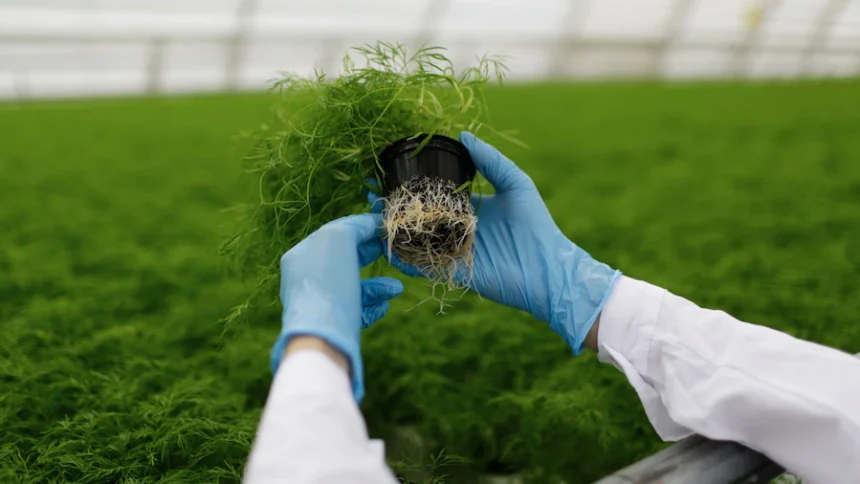Sustainable weed management is a crucial aspect of organic farming, as it aims to control weeds while minimizing environmental impact and maintaining soil health. Here are some strategies for sustainable weed management in organic farming:
- Crop Rotation: Implementing a crop rotation plan helps disrupt weed life cycles by alternating between different crops. Weeds that are specific to certain crops are less likely to become established if the crop is rotated regularly.
- Mulching: Applying organic mulch, such as straw, wood chips, or compost, around the base of plants helps suppress weed growth by blocking sunlight and preventing weed seeds from germinating. Mulching also conserves soil moisture and adds organic matter to the soil.
- Hand Weeding: Regularly inspecting and manually removing weeds by hand is a labor-intensive but effective method, especially for small-scale organic farms. This method ensures that weeds are removed before they produce seeds and spread further.
- Cover Crops: Planting cover crops, such as clover or rye, during fallow periods or in between cash crops helps smother weeds by competing for space, light, and nutrients. Cover crops also improve soil structure, suppress weeds, and provide habitat for beneficial insects.
- Weed Suppression with Allelopathic Crops: Some crops, like buckwheat or sorghum, release natural compounds that inhibit weed growth. Planting these allelopathic crops alongside cash crops can help suppress weeds and reduce the need for herbicides.
- Mechanical Weed Control: Using mechanical tools like hoes, cultivators, or flame weeders can physically remove or damage weeds without relying on synthetic herbicides. Care should be taken to avoid damaging crop plants while effectively controlling weeds.
- Weed Barrier and Mulch Film: Installing weed barrier fabrics or mulch films in row crops can prevent weeds from emerging and competing with crops. These materials can be biodegradable and offer weed control while allowing water and air to reach the soil.
- Weed-Suppressive Planting Patterns: Planting crops in closer spacing or in patterns that maximize shade and competition can reduce weed growth. For example, intercropping or companion planting can help create a dense canopy that limits weed establishment.
- Biological Control: Beneficial insects, such as predatory beetles or parasitic wasps, can be introduced to control specific weed species. This method requires knowledge of the target weed’s life cycle and the biology of the beneficial insects.
- Weed-Targeted Organic Herbicides: Organic herbicides made from natural ingredients, such as acetic acid (vinegar), citric acid, or clove oil, can be used to spot-treat or manage weeds. These herbicides should be used judiciously, as they can also affect desirable plants.
Remember that weed management in organic farming requires an integrated approach, combining multiple strategies and adapting them to specific crop types, local conditions, and weed species. Regular monitoring, early intervention, and maintaining healthy soil fertility are key to successful and sustainable weed management in organic farming.
Join 'Farmers Mag' WhatsApp Channel
Get the latest Farming news and tips delivered straight to your WhatsApp
CLICK HERE TO JOIN






